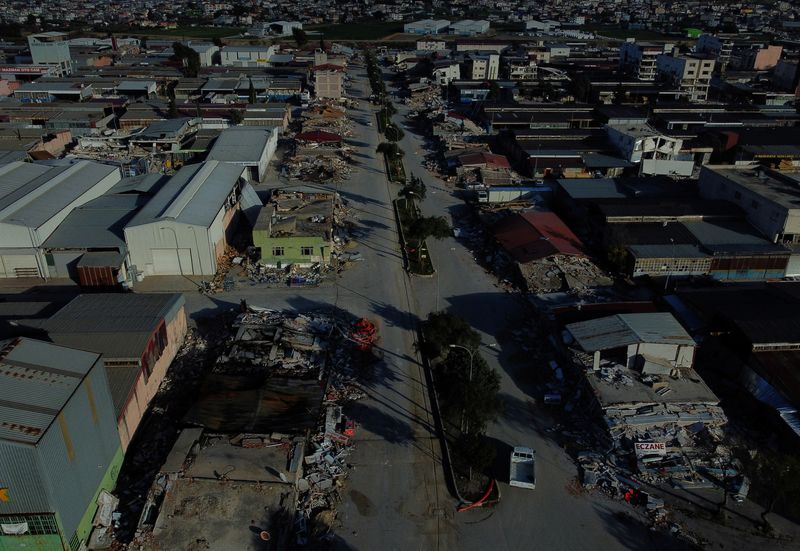ISTANBUL (Reuters) – Turkey’s central government budget recorded a deficit of 47.22 billion lira ($2.46 billion) in March, the Finance Ministry said on Monday, while the cumulative deficit for 2023 so far widened to 250 billion lira, mainly due to devastating earthquakes.
The primary balance, which excludes interest payments, logged a deficit of 2.15 billion lira in March, it said, bringing the total in the first three months to 149.37 billion lira.
The budget deficit widened sharply after the earthquakes struck southern Turkey in February at a time when President Tayyip Erdogan was already facing major economic challenges.
In February, the central government’s budget deficit stood at 170.56 billion lira and the cumulative figure for the first two months of the year was 202.8 billion lira.
Soaring inflation, which stood at 50.5% in March, has eaten away at household savings and also at Erdogan’s popularity, while the quakes have added to the difficulties he faces in seeking re-election in landmark polls set for May 14.
The government implemented bumper measures to minimize the earthquakes’ impact on the economy, such as delaying debt payments and offering wages and support money to quake victims which have also widened the budget deficit.
Economists reckon government spending on rebuilding and aid efforts could lift the ratio of budget deficit to GDP to above 5% this year, up from Ankara’s forecast last September of 3.5%. It stood at around 1% in 2022, despite widening in recent years.
The Treasury made a capital transfer of 3 billion lira for the transformation of disaster-prone areas in March, after the earthquakes devastated parts of 11 provinces in southern Turkey. It had made a transfer of 5.6 billion lira to the areas a month earlier.
The Treasury handed out some 15.7 billion lira to families and businesses in March, budget data showed, compared to more than 25 billion in February.
The economic cost of the earthquakes, which killed more than 50,000 people in Turkey, is estimated to be around $104 billion and is expected to shave one to two percentage points off economic growth this year.
There were no payments made in March to the state pipeline operator BOTAS and a government scheme that protects lira deposits against forex depreciation, the data showed.
It had transferred a total of 32 billion lira to BOTAS in the first two months of the year.
($1 = 19.2300 liras)
(Reporting by Ali Kucukgocmen and Ebru Tuncay; Editing by Daren Butler and Gareth Jones)
